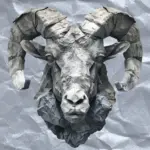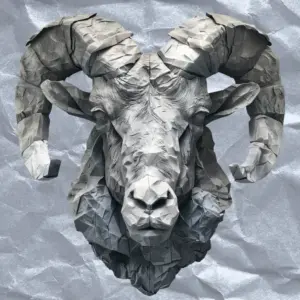The clock is ticking down. The crowd holds its breath. In this single, compressed moment, a universe of possibilities hangs in the balance, and it all comes down to one choice. Pass or shoot? Play it safe or go for broke? Stick to the plan or trust your gut? This is the heart of competition; the razor's edge of strategic decision-making where champions are forged and legacies are defined.
Every athlete, from the weekend warrior to the seasoned professional, faces these critical junctures. But what separates a good decision from a great one isn't just a matter of skill or luck. It's a reflection of who you are at your core. The way you process information, the source of your motivation, and your fundamental approach to competition all combine to create your unique "Decision Code."
Recent Research on Decision-Making in Sports (2025): A thorough review by Broadbent (2025) has highlighted new directions for understanding athletic decision-making, while research published in PMC reveals that excellent performance in game sports is largely determined by a functional decision-making process that integrates different cognitive and perceptual factors. These findings reinforce the importance of understanding your unique Decision Code while also considering how cognitive integration affects real-time choices.
The Mental Health Connection: Understanding your Decision Code isn't just about performance. it's also about wellbeing. According to the 2025 International Olympic Committee consensus recommendations, mental health services should be integrated into athletic development. Research indicates that approximately 35% of elite athletes experience mental health challenges including burnout, depression, and anxiety. often linked to decision-making pressure. Knowing your sport profile can help you recognize when competitive stress is affecting your mental health and seek appropriate support.
Research indicates that approximately 35% of elite athletes suffer from mental health challenges including burnout, depression, and anxiety - often linked to decision-making pressure.
Here at SportPersonalities.com, we believe that understanding your psychological blueprint is the ultimate competitive advantage. In this complete guide, we'll unlock the Decision Code for all 16 athletic personality sport profiles, helping you use your natural strengths and work through your inherent challenges to make better, faster, and more effective decisions when it matters most.
Understanding the 16 Athletic Personality Types
The SportPersonalities framework is a powerful tool designed for one purpose: to help you understand your unique psychological wiring as an athlete. This isn't about putting you in a box; it's about giving you the map and compass to chart your own athletic journey. By understanding your innate tendencies, you can fine-tune your training, sharpen your mental game, and unlock a new level of performance. Our system is built on four foundational pillars that combine to form 16 distinct sport profiles, each with its own way of seeing and conquering the world of sport.
The Four Core Pillars That Shape Your Approach
The SportPersonalities framework is built on Four Pillars, each representing a binary dimension of an athlete's psychology. An sport profile's 4-letter code is derived from these pillars.
DRIVE (I vs. E) - Your "Why"
This pillar determines the source of your motivation. Are you fueled by an internal passion for mastery and the love of the process itself (Intrinsic), or by the  Drive for external victory, recognition, and tangible rewards (Extrinsic)? Your Drive is the engine of your ambition.
Drive for external victory, recognition, and tangible rewards (Extrinsic)? Your Drive is the engine of your ambition.
COMPETITIVE STYLE (S vs. O) - Your "Who"
This pillar defines your primary opponent. Do you measure success against your own past performance and personal bests (Self-Referenced), or do you thrive on the strategic challenge of defeating a direct rival in a head-to-head competition (Other-Referenced)?
COGNITIVE STYLE (T vs. R) - Your "How"
This pillar reveals your method for problem-solving. Are you a careful planner who wins through strategy and preparation (Tactical), or are you an adaptive improviser who finds genius in the chaos of the moment (Reactive)?
SOCIAL STYLE (C vs. A) - Your "Where"
This pillar determines the environment where you feel most energized. Do you draw strength from being part of a cohesive team with shared goals (Collaborative), or are you at your best when working independently with full autonomy (Autonomous)?
How Each Sport Profile Approaches Strategic Decision Making in Competitive Sports
 The Anchor (ISTC): The Deliberate Team Strategist
The Anchor (ISTC): The Deliberate Team Strategist
For the Anchor, decision-making is a process of stabilization. Fueled by an intrinsic love for the game (I) and a focus on team success (C), their choices are methodical, well-researched, and designed to support the group's game plan. As a Tactical (T) thinker, they make their best decisions long before the game begins, through careful preparation and analysis. Under pressure, they won't make a risky, improvised play; instead, they'll fall back on the strategy they've rehearsed, providing a reliable and steadying presence for their team. Their key is to trust the plan they so carefully built.
 The Captain (EOTC): The Visionary Field General
The Captain (EOTC): The Visionary Field General
The Captain's decisions are all about orchestration. Driven by the desire to lead a team to victory (E, C) and to outmaneuver a specific opponent (O), their mind is a tactical chessboard (T). They are constantly processing variables - player positions, opponent weaknesses, the game clock. to make the optimal strategic call for the group. Their decisions are vocal, clear, and designed to inspire action. The Captain's greatest strategic gift is seeing how all the individual pieces fit together to create a winning whole, and making the decisive call that aligns everyone towards that single goal.
 The Daredevil (ESRA): The High-Stakes Improviser
The Daredevil (ESRA): The High-Stakes Improviser
The Daredevil doesn't make decisions; they react with flair. Their entire being is geared towards the high-pressure, high-visibility moment (E). As a Reactive (R) and Autonomous (A) athlete, they feel suffocated by rigid plans. Their strategic genius lies in their ability to absorb the chaos of a moment, trust their instincts, and make a split-second choice that no one else saw coming. They don't weigh pros and cons in a traditional sense; they feel the right move. For the Daredevil, the best decision is often the most audacious one, executed with unshakeable self-belief.
 The Duelist (IOTA): The Intellectual Assassin
The Duelist (IOTA): The Intellectual Assassin
Competition for the Duelist is a complex puzzle, and every decision is a calculated move to solve it. Driven by the intrinsic joy of the strategic challenge (I), they focus intently on dismantling a single opponent (O). Their Tactical (T) mind and Autonomous (A) nature mean they spend countless hours in solitary preparation, analyzing film, and running through scenarios. In the heat of competition, their decisions are precise and surgical, based on the weaknesses they've already identified. They don't react to the opponent's move; they force the opponent to react to a plan they set in motion days ago.
 The Flow-Seeker (ISRA): The Intuitive Virtuoso
The Flow-Seeker (ISRA): The Intuitive Virtuoso
The Flow-Seeker makes decisions from a place of pure presence. Their goal is the sublime feeling of perfect execution (I) and surpassing their own limits (S). They are Reactive (R) and Autonomous (A), meaning their best choices emerge spontaneously from the moment, unburdened by over-analysis or external expectations. Their strategic process is internal and fluid; it's a "feel" for the game's rhythm. They adapt effortlessly, not because they planned for every contingency, but because their connection to the present moment allows them to find the perfect response organically.
 The Gladiator (EORA): The Instinctive Combatant
The Gladiator (EORA): The Instinctive Combatant
For the Gladiator, strategic decisions are acts of competitive will. They are ignited by external stakes and direct confrontation (E, O). As a Reactive (R) and Autonomous (A) sport profile, they thrive in the raw, unpredictable chaos of head-to-head battle. Their decisions are aggressive, instinctive, and aimed at seizing dominance. The Gladiator doesn't think about the optimal move in an abstract sense; they feel the opponent's hesitation and instinctively decide to attack. Their strategy is simple and powerful: impose their will on the competition, moment by moment.
 The Harmonizer (ISRC): The Empathetic Adapter
The Harmonizer (ISRC): The Empathetic Adapter
The Harmonizer's decisions are guided by an intuitive sense of group dynamics. Their Intrinsic (I) drive is fulfilled by creating a smooth, collaborative (C) experience. As a Reactive (R) thinker, they don't impose a rigid plan on the team. Instead, they fluidly adapt to the changing needs of the group and the flow of the game - their strategic strength lies in making the small, selfless adjustments that put teammates in a better position to succeed. They are the glue that holds a team together, making decisions that strengthen chemistry and collective rhythm.
 The Leader (IOTC): The Collaborative Grandmaster
The Leader (IOTC): The Collaborative Grandmaster
The Leader combines the mind of a chess master with the heart of a team builder. They are intrinsically motivated (I) by the beauty of a perfectly executed team strategy (C). Their Other-Referenced (O) and Tactical (T) nature means they excel at creating sophisticated game plans designed to exploit a specific opponent's weaknesses. Unlike the lone Duelist, the Leader's genius lies in their ability to communicate this complex vision and get every team member to buy in. Their decisions are both brilliant in their strategic depth and inspiring in their collaborative spirit.
 The Maverick (IORA): The Unpredictable Soloist
The Maverick (IORA): The Unpredictable Soloist
The Maverick's decision-making process is defiantly their own. Driven by an internal standard of excellence (I) and a love for direct competition (O), they are the ultimate reactive individualist (R, A). They trust their gut above all else and refuse to be constrained by conventional strategy or coaching. Their genius is their unpredictability. In a key moment, when an opponent expects a standard play, the Maverick will make a decision based on a flicker of instinct or a momentary advantage only they can see, often catching everyone, including their own team, by surprise.
 The Motivator (ESTC): The Goal-Oriented Team Planner
The Motivator (ESTC): The Goal-Oriented Team Planner
The Motivator makes decisions that align personal progress with team victory. They are energized by external validation (E) but measure growth against their own benchmarks (S), creating a powerful hybrid drive - as a Tactical (T) and Collaborative (C) athlete, their strategic thinking is structured, goal-oriented, and communicated effectively to the team. They excel at making decisions that advance a clear, measurable game plan. They are the ones asking, "What is the most efficient path to our collective goal?" and then making the logical, prepared choice that moves the team forward.
 The Playmaker (IORC): The Spontaneous Team Catalyst
The Playmaker (IORC): The Spontaneous Team Catalyst
The Playmaker sees patterns in chaos and makes decisions that create opportunities for others. Their Intrinsic (I) love for the game fuels their desire to make the "beautiful" play that elevates the team (C), while as an Other-Referenced (O) and Reactive (R) athlete, they are hyper-aware of their opponents' movements and their teammates' positioning. Their strategic gift is instantaneous pattern recognition. In a split second, they can read the defense and make a daring, intuitive decision - a no-look pass, a sudden change of direction, that unlocks a scoring chance for the entire team.
 The Purist (ISTA): The Methodical Artisan
The Purist (ISTA): The Methodical Artisan
The Purist's decisions are a reflection of their deep commitment to their craft. They are wholly driven by Intrinsic (I) passion and measure themselves against an ideal form of their sport (S). This dedication is expressed through a Tactical (T), highly analytical approach to their performance. As an Autonomous (A) athlete, they make decisions based on their own exhaustive research and perfected technique. They won't compromise their form for a cheap win. The "right" decision is always the one that aligns with the principles of mastery they have spent years developing.
 The Record-Breaker (ESTA): The Analytical Achiever
The Record-Breaker (ESTA): The Analytical Achiever
The Record-Breaker makes decisions based on data and a clear path to a measurable outcome. They are motivated by external recognition (E) but focused on beating their own personal bests (S). Their Tactical (T) and Autonomous (A) nature makes them like a scientist in a lab - every decision, from training regimens to in-game adjustments, is calculated to improve performance metrics. They trust numbers and proven methods over gut feelings. Their strategy is a relentless process of analysis, execution, and refinement, all aimed at one thing: posting a result that is undeniably excellent.
 The Rival (EOTA): The Competitive Tactician
The Rival (EOTA): The Competitive Tactician
For the Rival, every decision is a move to gain a psychological and strategic edge over an opponent. They are fueled by external victory (E) and a laser-focus on a specific competitor (O). As a Tactical (T) and Autonomous (A) athlete, they are masters of opposition research. Their decisions in competition are rarely spontaneous; they are the result of hours spent identifying an opponent's tendencies and weaknesses. The Rival's strategy is to systematically dismantle the other person's game, making choices that exploit those predetermined flaws with ruthless efficiency.
 The Sparkplug (ESRC): The Energetic Team Improviser
The Sparkplug (ESRC): The Energetic Team Improviser
The Sparkplug's decisions are designed to inject energy and belief into the team. They thrive on external stakes (E) and are highly Reactive (R) to the emotional tide of the game. Their Self-Referenced (S) and Collaborative (C) nature means they make bold, instinctive plays not just for personal glory, but to lift the entire team's morale. When the energy is low, the Sparkplug will make a high-effort, unexpected decision. a diving save, a fearless drive to the basket, that serves as a catalyst, reminding everyone what they're fighting for.
 The Superstar (EORC): The Charismatic Performer
The Superstar (EORC): The Charismatic Performer
The Superstar makes decisions that create moments. They are born for the spotlight (E) and thrive on battling opponents (O) in a team setting (C). Their Reactive (R) genius allows them to feel the pulse of the game and the crowd, and to know instinctively when to take over. Their strategic decisions are often dramatic and seemingly high-risk, but are backed by supreme self-confidence. They have an innate sense of timing, making the breakthrough play that not only wins the contest but also defines their legacy.
Discover Your Sport Personality
This article explores one of 16 profiles. Find out which one you are and unlock a personalized blueprint for your athletic journey.
Take the Free TestPractical Applications by Sport Profile Group
Understanding your type is only half the battle. Here's how to turn that knowledge into action.
For the Tactical Planners (T-Types: Anchor, Captain, Duelist, Leader, Motivator, Purist, Record-Breaker, Rival)
Your greatest strength is preparation. Double down on it. Use film study, data analysis, and visualization to build rock-solid game plans. However, your challenge is adapting when chaos erupts. To train this, consciously build "if-then" scenarios into your planning, while what will you do if your primary strategy fails? Practice these contingencies so that your "adaptation" is just another layer of your plan.
For the Reactive Improvisers (R-Types: Daredevil, Flow-Seeker, Gladiator, Harmonizer, Maverick, Playmaker, Sparkplug, Superstar)
Your genius lies in your instincts. You must learn to trust them implicitly. However, pure instinct without a foundation can be inconsistent. Your work is to build a deep well of experience for your instincts to draw from. Drill fundamentals relentlessly, not to become robotic, but to make them so second-nature that you don't have to think about them in the moment. Use training to create high-pressure, unpredictable scenarios that sharpen your reactive mind.
For the Collaborative Connectors (C-Types: Anchor, Captain, Harmonizer, Leader, Motivator, Playmaker, Sparkplug, Superstar)
You thrive when the team is in sync. Be the one to make that happen. Initiate conversations about strategy, check in with teammates about their roles, and be the communicator who ensures everyone is on the same page. Your challenge is to not lose your individual decisiveness for the sake of group harmony. Remember that sometimes the best decision for the team is a bold, individual action that you must take with confidence.
For the Autonomous Individuals (A-Types: Daredevil, Duelist, Flow-Seeker, Gladiator, Maverick, Purist, Record-Breaker, Rival)
Your independence is your power source. Protect the time and space you need to prepare and perform in your own way. Communicate your needs clearly to coaches and teammates so your autonomy is understood as a part of your process, not as a sign of aloofness. Your primary risk is developing blind spots. Schedule regular check-ins with a trusted coach or mentor. not to cede control, but to consciously invite an outside perspective that can challenge and refine your own.
Conclusion: Your Personality Type is Your Performance Advantage
There is no single "right" way to make a decision in the heat of battle. The calculated precision of the Duelist is just as valid as the spontaneous brilliance of the Daredevil. The goal is not to change who you are, but to become the most effective version of yourself, while by understanding your sport profile, you gain the self-awareness to use your natural decision-making style as a powerful weapon.
Embrace your inner code. If you are a planner, plan better than anyone else. If you are an improviser, sharpen your instincts into a razor's edge. Your personality isn't a limitation; it is the very source of your unique genius, and own it, understand it, and use it to make your mark.
References
- Decision making in sports (Sciencedirect.com)
- Decision-making process in game sports: what do top-level ... (Pmc.ncbi.nlm.nih.gov)
- Advancing judgment and decision-making research in ... (Sciencedirect.com)
- Advancing judgment and decision-making research in ... (Researchgate.net)
- Chapter 27 Self, Relational, and Collective Efficacy in Athletes (Kinesiologybooks.org)
This content is for educational purposes, drawing on sport psychology research and professional experience. I hold an M.A. in Social Psychology, an ISSA Elite Trainer and Nutrition certification, and completed professional training in Sport Psychology for Athlete Development through the Barcelona Innovation Hub. I am not a licensed clinical psychologist or medical doctor. Individual results may vary. For clinical or medical concerns, please consult a licensed healthcare professional.






































